Taking care of a baby can be a challenge if you’ve never done it. Not all people know what one-year-olds can or can’t eat, what their sleep schedule is like, and what soothes them or irritates them. Parents deserve a much-needed break now and then, but they should always make sure their child is in good, capable hands.
What the mother in this story did was quite the opposite. She decided to take some time off from her one-year-old daughter and leave her with her brother’s girlfriend. The problem was that she didn’t leave any instructions, food, or notice that she would be gone for a few days. Left alone with a baby she didn’t know how to care for, the woman called the police.
A baby is a serious responsibility, and you can’t just leave them with whomever whenever you feel like it

Image credits: YuriArcursPeopleimages / Envato (not the actual photo)
This mother left her daughter with her brother’s girlfriend and got a surprise when the woman called the cops on her

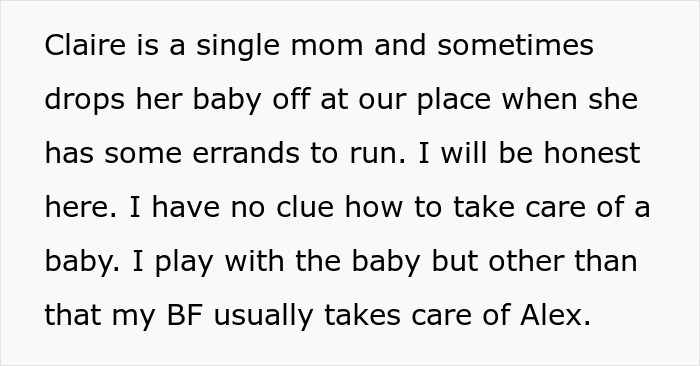
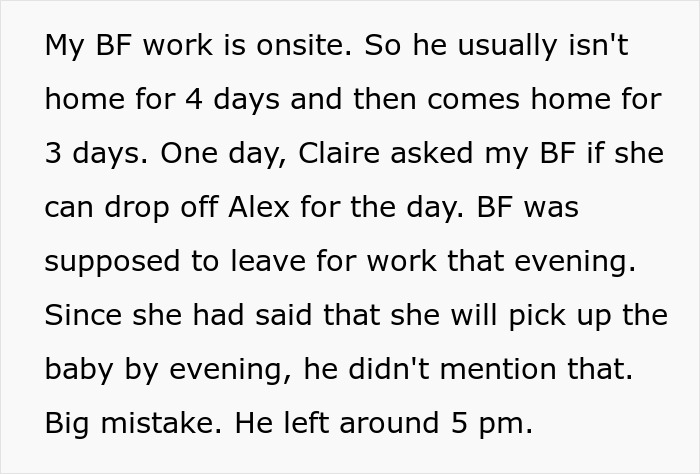
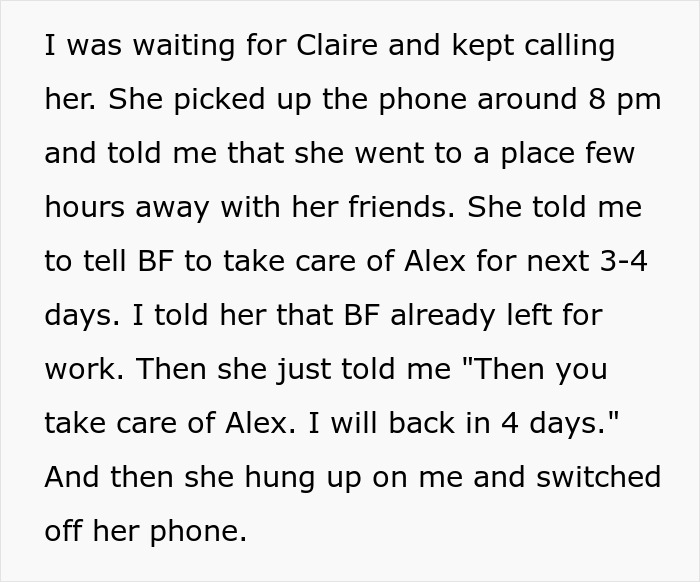
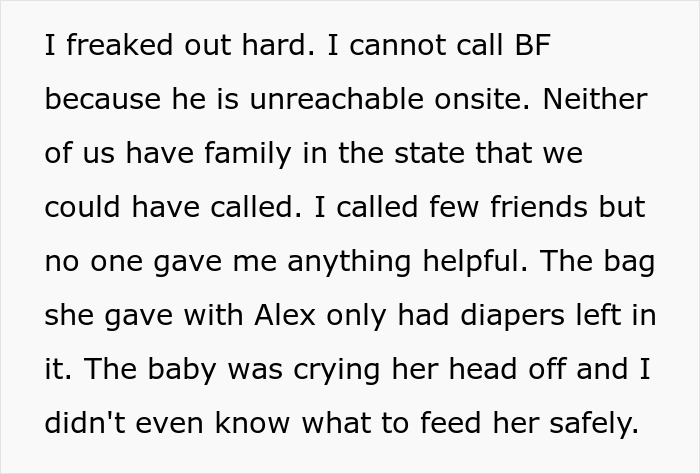
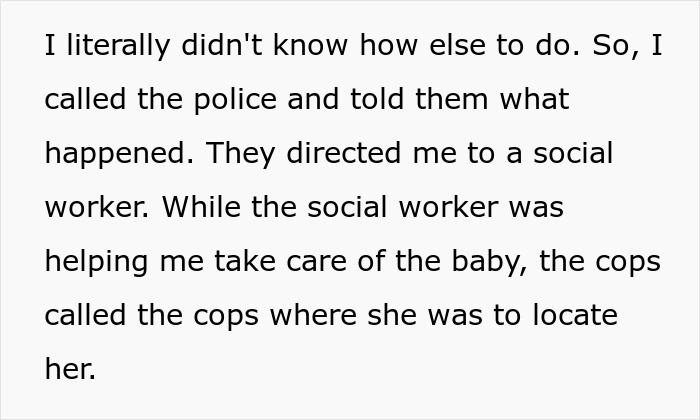
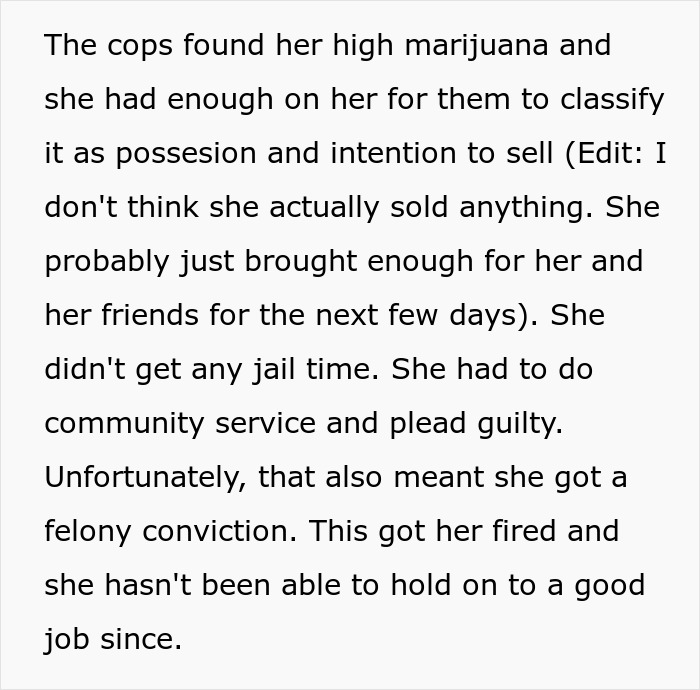
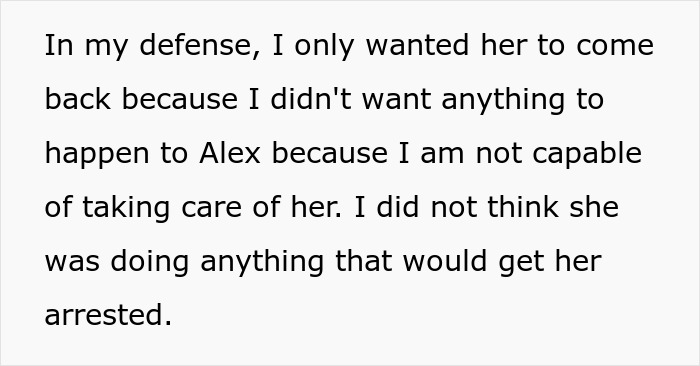

Image credits: wirestock / Envato (not the actual photo)
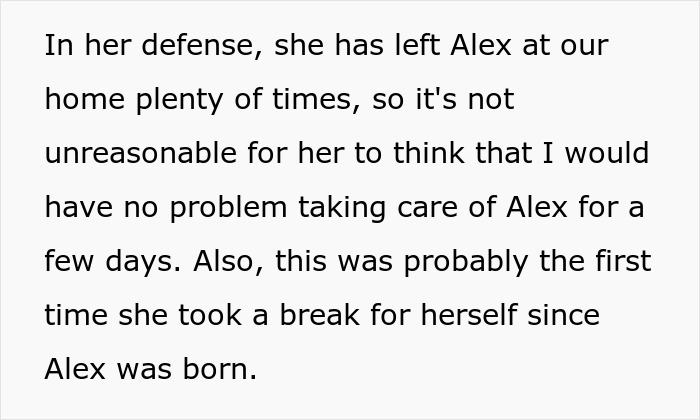
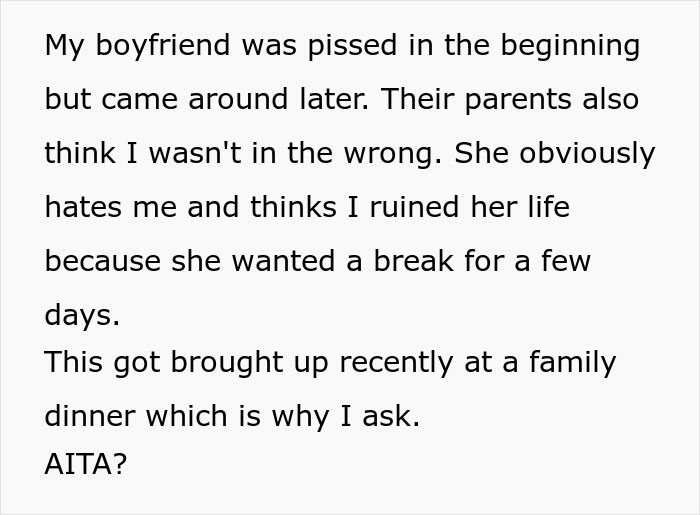
Image credits: throw_weeddilemma
The author clarified in the comments that the mother’s decision seemed spontaneous
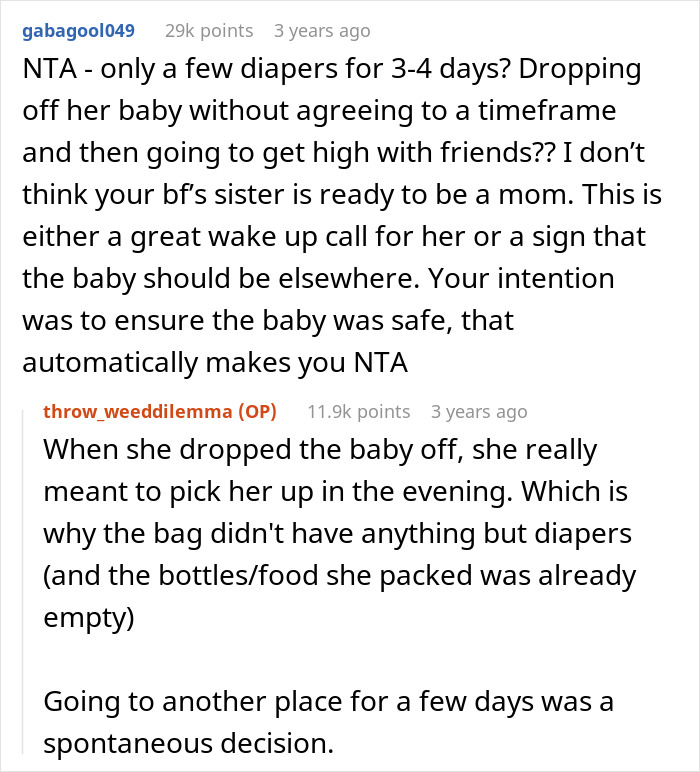
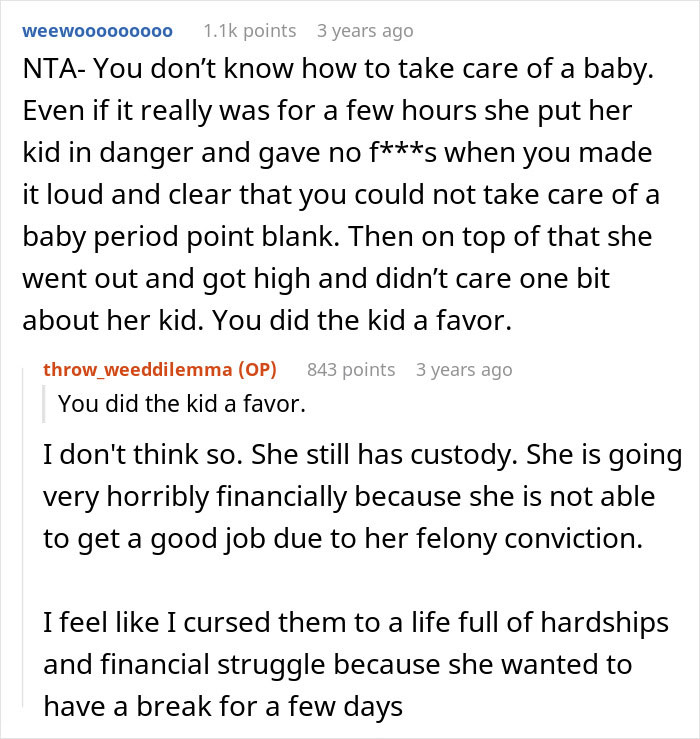
Children aged one year or younger suffer child neglect most often
When you decide to have and raise a baby, you have to know the commitment you’re making. A child will most likely be a parent’s top priority in the first years of their life, so they have to plan their life accordingly. Things that were part of daily life before, like hangouts with friends, might be off the table for some time.
If they don’t devote enough time to their children, some parents might be guilty of neglect. Child neglect can take many forms: physical, emotional, educational, or medical. And child maltreatment statistics are pretty grim. The SPCC reports that 74% of maltreatment cases are about neglect.
Substance abuse is often the culprit, as 30-60% of maltreatment cases involve at least some degree of it. And children aged one year or younger are at the highest risk of being victims of neglect. The effects carry on to their own adulthood, as almost 30% of adults who experience neglect and maltreatment as children will continue the same cycle with their own children.
Leaving a child with an inadequate caregiver can be considered neglect
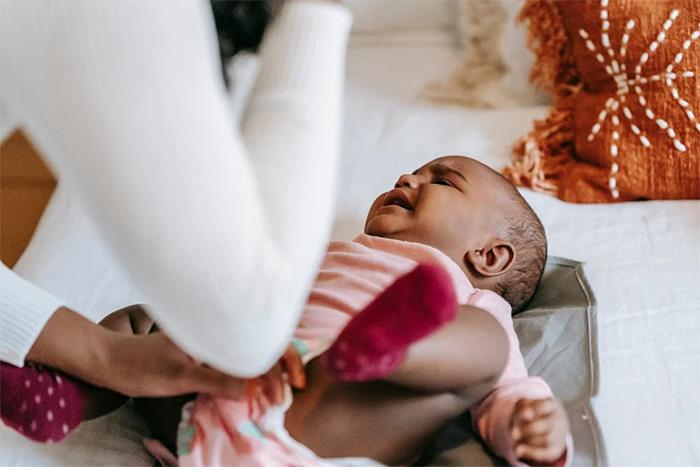
Image credits: William Fortunato / Pexels (not the actual photo)
When we think of child neglect, we tend to imagine extreme scenarios, often in one of the four forms we mentioned above. For example, when a child is left alone at home for long periods of time or when they’re severely malnourished. The law defines child neglect as the “failure of a parent or caretaker to provide needed food, clothing, shelter, medical care, or supervision to the degree that the child’s health, safety, and well-being are threatened with harm.”
The reality is that lack of supervision is also neglect. Leaving a child alone to care for themselves or leaving them with an inadequate caregiver is also neglectful. The problem is that this issue is a big gray area. Even experts don’t entirely agree on what equates to supervisory neglect. “There are no established standards that define adequate (or inadequate) parental supervision across a wide variety of cultures and specific circumstances,” according to the American Academy of Pediatrics.
At the same time, they have guidelines for pediatricians about when to report a possible case of child neglect. “Supervisory neglect occurs whenever a caregiver’s supervisory decisions or behaviors place a child in his or her care at significant ongoing risk for physical, emotional, or psychological harm.”
Parents, especially single parents, need time to rest so they can provide adequate care

Image credits: Andrea Piacquadio / Pexels (not the actual photo)
Being a single parent can be hard. Parenting is a full-time job, and every mom and dad deserves some time off. Today, many parents face the pressure to be perfect. Recent research shows that 57% of parents report burnout. So, it’s important to take a break, practice mindfulness, and have a rest.
Single parents have the same worries and anxieties that other parents have. Whether it’s about food, clothes, diaper rashes, or emotional development, it’s all part of the universal parenting experience. The difference is that they often have to make difficult decisions by themselves. They’re also more socially isolated than their counterparts because they don’t have a partner who can watch the child. Not to mention the finances, which the single parent has to cover all by themselves.
Some strategies to cope with parenting stress include taking some alone time, finding strength in one’s community, and setting boundaries. Caroline Leaf, PhD., author of How to Help Your Child Clean up Their Mental Mess, told Fortune: “Schedule in time for yourself to do things that make you happy. This will give you the space needed to decompress and rest, so that when you get back into parenting mode you will have more energy and won’t feel so burnt out.”
Psychology Educator Kendra Cherry, MS, points out how setting limits on what they accept can really help single parents. “Setting boundaries for yourself will help you manage your time and energy so that you don’t get overwhelmed. It will also help you find more balance in your life.”
Lastly, finding a safe space to vent their frustrations and worries can also be healing. Having a community of people you trust and who are going through the same hardships and challenges lets you know you’re not alone in your struggles. Strength is, after all, in numbers.
Some folks sided with the author, claiming that the mother was irresponsible

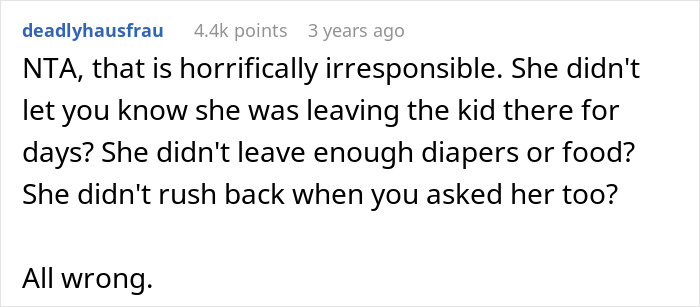
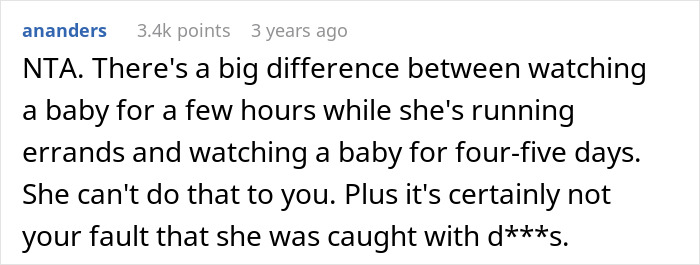
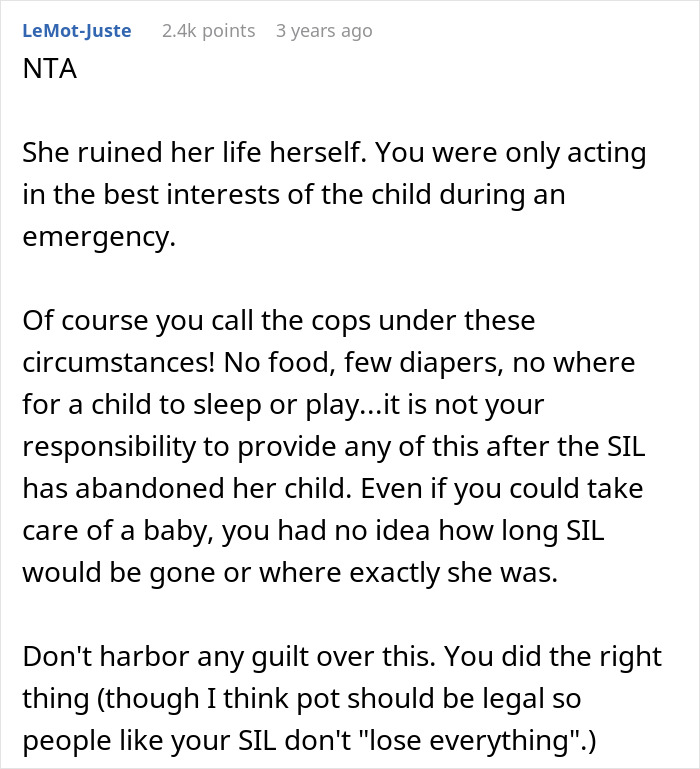
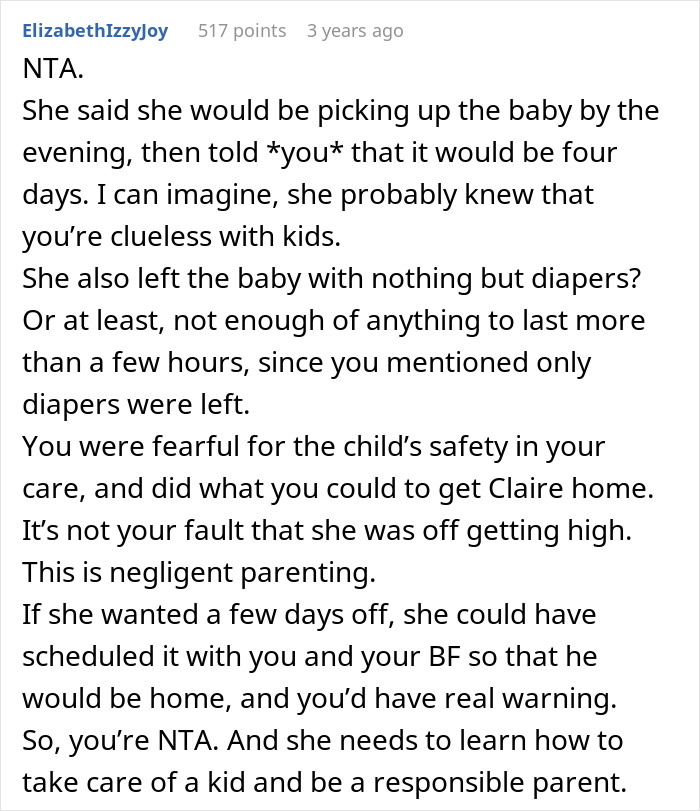

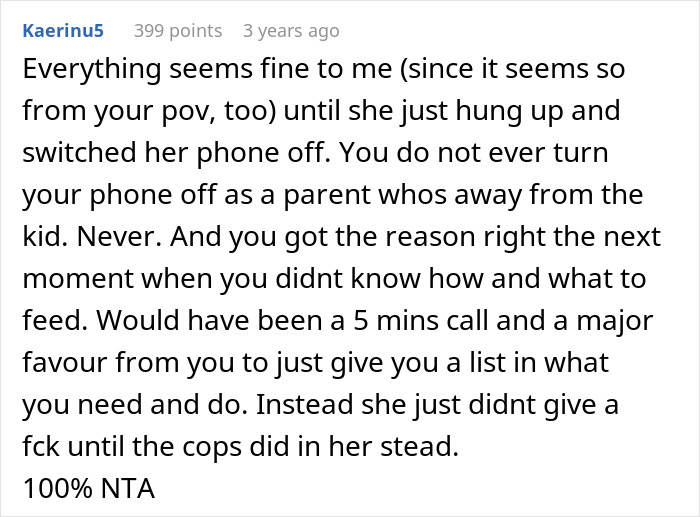
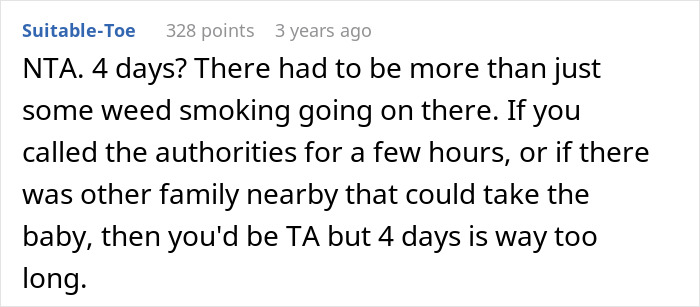
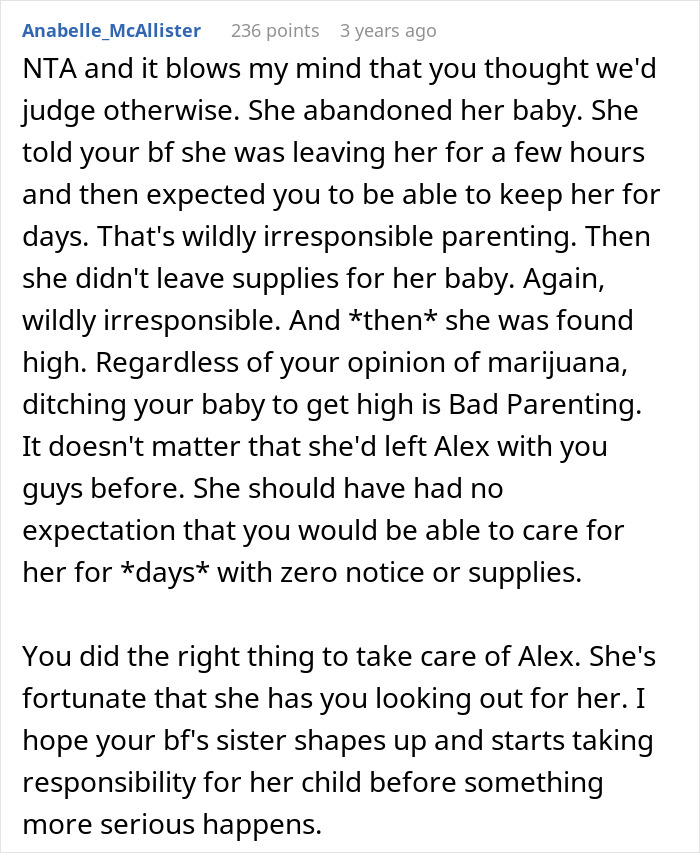
Others claimed that calling the police was a bit too much; she could’ve taken care of the baby herself

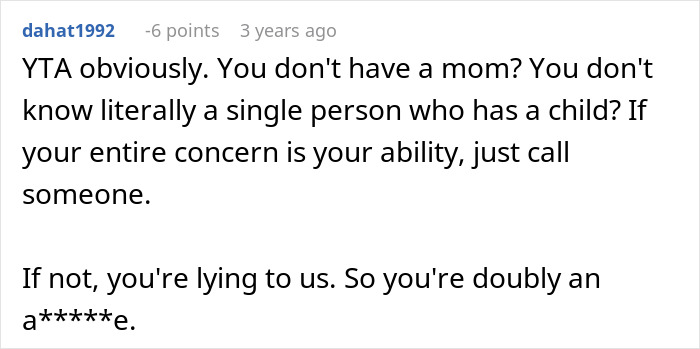
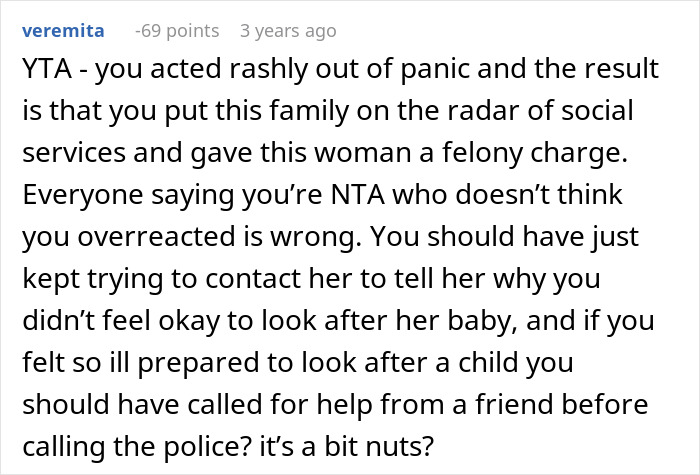
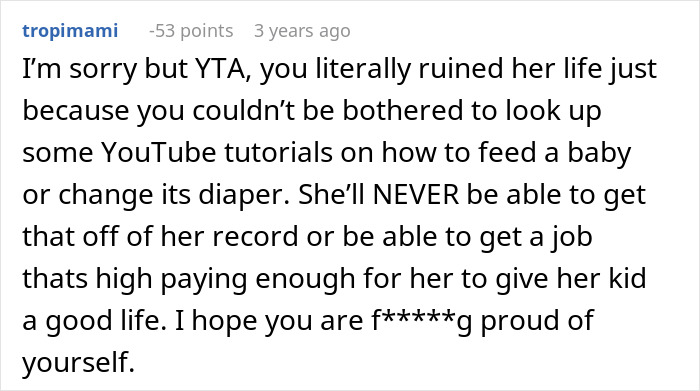

And others argued that everyone acted like jerks here












